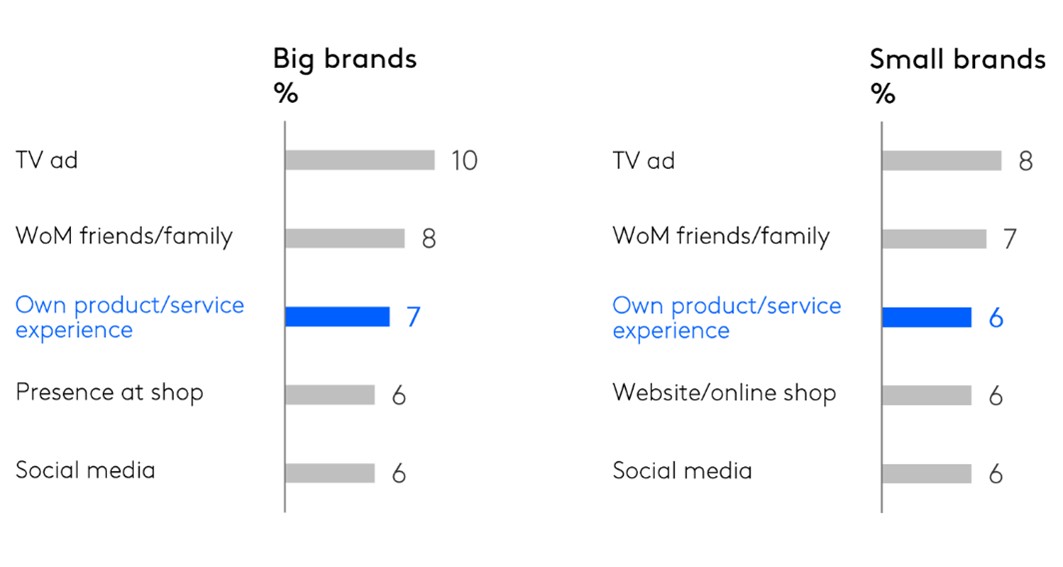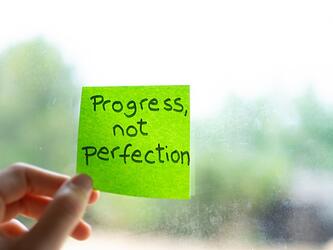Into the past: Life experiences and consumer choices

During periods of high inflation, pricing strategies can fall by the wayside as marketers respond to rapid market fluctuations. ‘Skimpflation’ is a relatively ugly word reflecting what some brands have resorted to as an antidote to inflation.
According to Forrester, 19% of brands skimped on the quality of their products or services in 2022. However, this has not gone unnoticed by consumers: 66% experienced ‘skimpflation’, and 87% vow to spend less or stop spending money altogether with brands that reduce service.
This tells us that experience and association matter to brands. It demonstrates how short-sighted, quick fixes to cut costs do not go unnoticed, and instead negatively impact a brand due to the role that personal experience plays in a consumer’s purchasing journey.
In his TED talk The riddle of experience vs memory, psychologist Daniel Kahneman explains that “we don’t actually choose between experiences, we choose between memories of experiences”.
Kahneman’s study changed the conversation about repeat purchasing and preference. His work shows that what’s most important to marketers is to gain ground in the mind of the consumer. This is because, in marketing, perception trumps rationale. Kahneman was among the first to point out that people don’t make decisions on pure economic value alone; rather, intangible value plays a significant role, even though many don’t like to admit it.
How do we associate brands with past experiences?
Experiences turn into memories which form the various associations (both positive and negative) that consumers have for each brand. It’s what we call brand image – a step above salience. Yes, we might know that the brand exists, but what do we associate with it, and how does our experience affect our current perception?
Two recent Kantar studies demonstrate that experience plays a significant role in customers opting for one brand over another. Also, consumers are willing to pay a premium for experiences that delight them. Kantar surveyed more than 7,000 brands, asking consumers to rank all touchpoints they could remember and the quality of their memory. The results? Product or service experience posed as the third most influential touchpoint, no matter the brand’s size or the age of the audience.

Source: Kantar Connect Touchpoint Database, Kantar
Separately, Kantar analysed the performance of more than 3,900 brands from its Kantar BrandZ global brand equity database, which covers 58 categories and 21 countries, to determine what triggers people’s decision-making. The study revealed that experience influences repeat purchases and that brands that maximise retention yield a 7% increase in growth.
People don’t buy randomly: their predisposition towards a product or service massively affects a brand’s chances of being chosen over another. So the correct response for marketers is to invest in building brand associations across the broadest audience and then optimise campaign activation to make their brand the easy and obvious choice.
What does this mean for brands navigating economic downturn?
The power of nostalgia in marketing cannot be overstated. Think about how the first note of a song or the aroma of a delicious meal can spark a memory and take you back to a familiar time or place. Consumer decision-making occurs within a feedback loop – few things are as emotionally stimulating as an experience driven by nostalgia, and similar behaviours can be applied to brand loyalty.
The power of nostalgia is demonstrated in the TV show Mad Men, where the central character, Don Draper, pitches the Kodak Carousel, characterised by a desire to create an emotional connection and ignoring rational product features. Draper says that what sells things is not just the product itself but also a sentimental bond with a product. He then proceeded to use his own personal memories to sell the Kodak slide projector as a portable time machine. This powerful, personal pitch is all about nostalgia.
Away from fiction, marketers are often tempted to make their brands more affordable when faced with an economic downturn or rising inflation. They usually do this by giving in to one of the following three compromises: they either offer great discounts at the cost of damaging profits; cut advertising budgets which risks losing market position; or reduce the quality or quantity of their product or service.
Drawing from Draper’s pitch example and Kahneman, one would suggest marketers should think twice about how they adjust to challenging economic constraints, as short-sighted cuts can have long-term consequences. It’s important to remember that by increasing brand predisposition, repeat purchasing will also increase. Since brand preference is linked to experience, ensuring an excellent consumer experience will also drive repeat sales.
Short-term compromise on quality will likely lead to less favourable attitudes and perceptions amongst the consumer base. How a consumer remembers their previous experiences with a brand directly influences what they associate it with and that all-powerful intangible sentiment. If that association is positive, the brand is bound to prosper.
Mary Kyriakidi is global thought leader at Kantar

We hope you enjoyed this article.
Research Live is published by MRS.
The Market Research Society (MRS) exists to promote and protect the research sector, showcasing how research delivers impact for businesses and government.
Members of MRS enjoy many benefits including tailoured policy guidance, discounts on training and conferences, and access to member-only content.
For example, there's an archive of winning case studies from over a decade of MRS Awards.
Find out more about the benefits of joining MRS here.













0 Comments